Desi Anderson has made it her career to master the art of gumbo. She travels the world sharing that dish and her Creole background with long tables of happy guests. She sat down for a chat with Blake about her background, making gumbo and going with the flow.
Blake: Desi, thanks for taking to time to talk with me about gumbo and your career as a traveling chef. How did this get started for you?
Desi: Well, my husband is a jazz musician.
He has played with Wynton Marsalis for over 35 years. So we've been traveling since we were basically 19 years old or so. The name of my company is called gumbo and Jazz. And we combine the Louisiana Creole cuisine with music. In fact last year, Brian (Landry) came over to Ascona, Switzerland, and that was my second year at the Hotel Eden Rock.
In Switzerland I worked with a team of Italian chefs. We featured my menu for 8 to 10 days and they now always call me back because they realize that the menus are not as simple as doing a recipe. It takes time. It's generation after generation of skills and techniques that it takes to make a simple dish, which ultimately is not a simple dish. But it appears to be at the end and that's gumbo in particular.
Blake: How did you wind up starting the company? How long ago was it when you started cooking for others?
Desi: It was 2007 in East Lansing, Michigan. During that time, East Lansing had just closed their GM plant. Before moving there, Wes, my husband, had accepted a position, gotten off the road, and accepted a position at Michigan State.
And I was a teacher at the time, social studies teacher, specifically, world geography teacher. I was teacher of the year before we left. So I was very confident that when I got to East Lansing, it wouldn't be a problem getting a decent teaching gig. There were only blue collar gigs available at the time.
There were teachers that had master degrees and PhDs teaching social studies. So I knew at that point I'm a person that can go with the flow and I wanted to change things up anyway. I quickly learned, okay, this is not going to be as easy as I thought. I decided to take a sabbatical for 1 year. During that time I found a place that can hold only about 20 people. And I figured that's like feeding my family. I can do 20 people by myself hands down. And I just jumped off the bridge and opened up this little place, went through the inspection and got all the things that was needed, used a little bit of my savings to set it up, turned on the light, passed the inspection.
Inspector says, "you're ready to go." I turned on the light and I realized, Oh my God, what have I done? Because not only was the light open, and the gumbo was ready, and the étouffée was ready, no one knew me in town. Had it been in New Orleans, I could call up some friends and say, Hey, you guys come over here, eat some gumbo.
So the owner of the place had a pizza joint right next to me. It was connected to my building and lots of construction was going on at the time. So he would have lines out of the building. He came to me. He says he's Lebanese. He says to me, he says you should give some samples of that "jumbo" to the people outside.
So I'm like okay. I'll do that. I did that for three weeks and so it got to the point where the weather changed. That was around August and then around October the weather changed. I didn't know this in hindsight. His lines outside were getting cold and they needed something quick. They knew that Gumbo was next door. It was good and hot and it works. So not only that, I was on a street where all the students would walk to class. So I would go outside and meet them in the morning with these styrofoam cups of Gumbo. And sometimes it was grits and shrimp and grits.
As they were walking the smoke from the cups was coming up and people were asking them, "Hey, where'd you get that? What is that? And where'd you get it?" So it became word of mouth.
Blake: The product was the marketing itself.
Desi: It was marketing itself.
I changed my attire to more of an apron. Because I wanted to feel like home. I wanted to feel like "yeah, you're at your aunt's house, right?" And so that's what took off. My personality, of course, had something to do with it. But overall word of mouth.
Five years into it, I was catering upstate in Harbor Springs with some chefs and there would be a huge meeting for the football team. Michigan State football team. One of their sponsors, this guy's name is John Demmer. He was the guy who created the Hummer. Back in the 1940s. And for this event he hired five chefs.
I was one of them. And the thing is, I am not formally trained, but I am pretty good at seasoning and that comes from my Creole background. So even though their foods would look like $50 and mine would look less, I can make their food tastes like mine. And so these guys would hire me to come up there to cook.
I knew I needed to know how to look, sound, and act like a chef. I needed chef skills. I needed everything that you're taught. That's the trade off. And so for three years every summer, because business in East Lansing was very slow, I would go up there and hang out with these guys. These big chefs. They're the ones that actually put me on the map because that following summer I was hired by the Michigan State football team and I catered for them every Wednesday for their training tables and then came the parties and then came company parties and weddings and it grew pretty quickly.
That went on until 2013, when tragically Wes and I came to Baton Rouge to do a performance at Baton Rouge General. And while we were eating Wes started eating with his left hand. I had a brother that ate with his left hand, and I said, why are we bumping elbows? If I hadn't had that experience as a child, I wouldn't have noticed we were bumping elbows.
And he says, "my right hand feels light." I said, "get your horn." He got his horn, tried it, and couldn't play. Immediately we put him in the car. And in Baton Rouge he had a massive stroke, completely paralyzed all the way down on his right side.
I was going into year seven of Gumbo and Jazz. I was going to do no new business for the holiday season. It was all repeat business. And they were calling to put down the deposits. And I had the phone in my ear. I did the great stall, "can I get back with you?" And the whole time I'm looking at my husband in ICU thinking my life has changed.
I then went with my flow. I got rid of my house. We sold our homes. We did whatever we could because the insurance would only take care of three weeks of in home rehabilitation. So we negotiated and lo and behold, we could stay eight months, but it came at a cost. I used the equity in my home.
My goals changed. It basically put them on hold. When I got to New Orleans, I didn't do much. And to be honest with you, I was a little intimidated. In Michigan, I was a big fish in a little pond. And I didn't give myself enough credit. Because where did I learn the best foods? Where did I learn, where do I go and eat?
It's all in New Orleans. And I hadn't established myself yet at that point. But during those years, those 10 years, I started doing small gigs here and there, started cooking for the homeless with St. Jude, Catholic Church that we became members of, and I still had gigs outside of New Orleans, back in Michigan, Puerto Rico.
Friends had traveled and moved in different areas, so I would go to their Airbnb and cook. So then I started feeling a little confident at that point. And I finally got the call from Askona, Switzerland. The head chef at the Marina Hotel there says, I would like for you to come and spend three weeks with us. We'll feature your menu. And that was right after the pandemic. In fact, it was one of the things that I wrote down I wanted to do. I knew Wes was getting stronger. He was at Loyola. I think to that point, now it was my turn. So I wrote down five things that I wanted to happen. And one was I wanted to teach internationally, Creole cuisine, and through the music as well.
The combination now of gumbo and jazz that I created in 2007 has now merged at that point. And that's what we started doing. So that's what I do. I do parties. I bring the music. I bring the food. But my specialty is gumbo. The one thing that I messed up, because I had a company called Gumbo and Jazz, you couldn't open the doors without gumbo. So gumbo become my thing.
And even when I broke the rules, like burning the roux, and still continuing on. You know you're supposed to start over completely when that happens. But when you have a deadline of 11:30 with doors opening, you do what you need to. I pushed it one day, tasted the gumbo right around 11 o'clock, and I was too embarrassed to open the door. I put a note on the door, had an emergency, see you tomorrow.
I didn't open that day. And it was a lesson. I made the mistakes of any business. I made it on a small scale of 20 seats. Before I realized, okay, I have to master this. And I made gumbo probably for six months, every other day, until I got my system down. And able to train others that work with me. There were a group of ladies from El Salvador I trained.
During their youth they travelled over. So they never had a mother figure. And so I taught them how to do this. Creole cuisine. And before I left, we did a big gumbo and jazz event. I invited Michael White, Don Vappy, Carmen Bradford. We had about 15 musicians that we flew over and sponsored, and we had a huge gumbo and jazz event.
My apprentices were the ones that did the gumbo and everyone was giving me compliments. And I told the truth that night. At that point, that side, that teacher side rose up in me.
So in Michigan, that's where I learned. Okay, I can teach this. Not only have I mastered it, I can now share it. And I want to do it all over the world.
Blake: How did this Switzerland thing happen? I'm really curious about that. You mentioned you went there to cook but how did it come about?
Desi: Good point. Good point. It was during the pandemic in 2019. Right before the pandemic, I got a call from this guy by the last name is Bianca.
Giovanni Bianca was the general manager for Hotel Eden Rock. I didn't know about Hotel Eden Rock. He was in a meeting, talking to other people, other Hotel Eden Rock people. Managers and food and beverage guys. And there was a gentleman in the room. He says, look, I want to bring New Orleans cuisine in toour restaurant. And the guy says, I have a person that cooked for me 13 years ago in East Lansing, Michigan. Her name's Desi Anderson. Get her, don't look at anyone else.
So the guy called and, unfortunately the pandemic happened. So I didn't really get to go until 2021. And then again in 2022 and 2023. We're working now on 2024.
When I'm there, I get a 90 day visa and I go to different regions in the area. Milan, I have a gig there this year and in Stuttgart, Germany. There's a couple that want to do a party while I'm there. That's like my home, my second home base now.
Blake: Yeah, well that's a great second home to have.
Desi: Yeah, for sure.
Blake: What's the response from the folks who get a chance to eat your meals when you travel outside this area?
Desi: I'll say this, if you can go to East Lansing, Michigan and serve gumbo in a traditional way with all of the experiences. When you make it you have to know your clientele, number one. So we're not dealing with a lot of spice. Dealing with layers of flavors. And you're using the local resources. I didn't have Andouille sausage, and if I did, it was too spicy. So I had to learn quickly how to make my own sausage for my own gumbo. And spent some time with some in West Wego. There's a company there called Market Wego.
And I would go down there and help them make their sausage until I learned how to do it myself. And so a butcher in East Lansing would use my recipe and make my links for me.
You come sit down, tell me your likes, your dislikes, and your allergies, and dietary restrictions, and then I lay it out family style.
So with that, they were exposed to more than just gumbo. And I learned quickly, when I hear that quiet in the restaurant, I know I'm winning.
Blake: It's a good sound. The quiet is a good sound I'm assuming.
Desi: It is the highest compliment a chef can have.
So the same thing applies when going to Askona. The fun part, I am using their local ingredients, their fresh fish. They really spoil me in a way because I can get everything fresh in 24 hours or that morning. So this year i'm doing a lobster gumbo. I'm hopping around with this story to tell you how it works.
In October, I fed a family the whole month of October in York, Maine. The son owns traps. So every day, whatever he caught, I made a meal. I prepared a meal out of that. And one day, we'd had lobsters the day before, and I took the shell and made a broth. I said if I'm this close, let's go ahead and do a gumbo. I'm bringing that experience now to Askona.
Blake: What are the different variations of gumbo you like to make? You mentioned a few times when you're asking people what their preferences are, but if you had to pick your favorite two or three variations of gumbo to make what are they?
Desi: It's only one. It's only one. If you can master this one, you can make any of the other ones. And that is the chicken and andouille okra gumbo. Hands down. It's making spaghetti with just marinara. If you can master your marinara I'll eat anything else in your restaurant. Because you've mastered a base,
A dark roux will make gumbo, right? But if you stop and it's a light roux you're Alfredo sauce is going to be great. You make it a little bit browner. Your etouffee is going to be great because you've mastered the base.
You're using the Trinity, the onions, bell peppers, and celery, you're using those in your base, then you can make anything. You can go anywhere from there.
I did this one dish. There's a jazz dinner show called Dizzy's Coca Cola. I was the guest chef, and Wes and my son played for that week. And what I did was a trilogy. It was challenging for me because I did a trilogy gumbo. Side by side, you're tasting the traditional one, chicken and andouille. You're tasting the seafood gumbo, which has a different broth. And then I made one with lamb and okra. And I did that for those people that were either allergic to shrimp or did not eat pork, so more Mediterranean. They were side by side.
I worked on one probably for about four months, the lamb and okra. Because the lamb is such a strong thing, it overpowered my broth. So I had to work on that.
Blake: When you are making gumbo for folks over in Europe, or up north in Michigan, is there ever an opportunity when you're talking to the folks who are eating, do they ever ask about dish itself? Its indigenous roots or where this comes from? The influences? Gumbo's got a incredibly long history.
Desi: I always go back to my grandmother. My grandmother is Creole. She lived in a small town in Louisiana called Chataignier. It's a bayou town, right? And then my other grandmother was from Algiers, New Orleans. Across the river. West Bank. I would cook with them all the time. I heard many stories about having great grandparents that were African, but they were all fair complexion.
I'm the darkest person in my family, but my parents were, my grandmothers, my mother, my siblings are all white complexion. We come from this French, Native American and African influence. And my grandmother that lived in Chattanooga owned land because her grandmother was a product of a slave owner.
And even though we all use sort of the same resources, the crawfish, the rice. I love to lean on that Creole heritage and I explain to people all the time, that's probably why they want me to sit at their table. To give a chance to explain before they eat their meal, where this is coming from.
This is not just some random gumbo. This comes from being taught from women and my dad how to bring together different types of seafood and other meats. But the main thing is the roux. Taking flour and butter and taking your time to make that because again, that roux, that base, I can make 20 different dishes. I learned that because I am the one that my grandmother would call in throughout from playing and she would ask me to just stand by her.
She's making her roux until it became my skin complexion. And then I knew at that point, I would run back out. My cousin would say, you're in trouble. I was like, no, she's just making gumbo. I didn't know that I had a gumbo gauge.
Blake: Explain that more, the gumbo gauge.
Desi: The gumbo gauge. When you starting off with Rue, Rue is white flour and butter or some type of fat, but I use butter. You have to turn off the phones and take your time on a medium fire.
And you stir. And when you stir, it starts to change. The butter begins to cook the roux. We cook the flour. And it's now changing into various levels of brown. And when I call a blonde roux, that's something that you can put in macaroni and cheese, and make a cheese sauce. Because it's not very dark. It's just a little bit of the butter cooking the roux.
But to get to this brown peanut, pecan taste, that smoky taste, you have to do this evenly and constantly. And if you speed it up, you are going to burn it. And ultimately when you add all your goodies that you're going to make your gumbo with, it's not going to change because your root, your base is off. You can't write that in a recipe. You can only show someone that, and they have to go home and, in the words of musicians, you have to practice and make your own mistakes. I use that word mistakes because it is definitely a mistake. But it's a good mistake because you've learned a step that you shouldn't do anymore.
And that is something that we do as a family. Those of us that can make the roux, we share the roux with other people so they can make other things.
Does that answer your question?
Blake: Yeah, that was great. What's your advice for some of the do's and don'ts From your many years experience making gumbo.
Desi: Number one, Patience. You have to commit to this process. It may take you eight hours, maybe 10. If you are a first timer.
The first thing is patience. Second prep your other things, your onions, your bell peppers, your celery. Those are the Trinity. You must have those ready to go. I would suggest you make your own broth instead of buying a chicken broth. Broth is when you're taking that onion, you're cutting off the skin.
You put that in water. You don't throw that away. And then you go ahead and chop your onions. Same thing with your celery. The parts that you would normally throw in the trash. You put that in a water, a pot of water, the onions, bell peppers, same thing, just no seeds. Put the other ends in there and begin to boil that.
While you are making your roux, continue to boil that broth. If you want it more chickeny, you add some chicken bones to it. But a simple vegetable broth is good. It's so much better than water. And it's so much better than a salty store bought chicken broth.
I would recommend you taste every step of the way, because the more you cook, taste every step of the way. Because what it starts off with, it's going to be flour, but if you cook it long enough, it then becomes something just scrumptious and you begin to say, okay, I have something here.
And at that point, that's when you add your good stuff. Keep in mind, it's only onions, bell peppers, and rue that you're boiling with your stock. If it tastes good at that point, then you go ahead and add the chicken, your shrimp, and whatever else you would love to have.
Blake: Do you use file powder for thickening agent?
Desi: Yeah that's on that end. That's on the very end. Two things are on the end of mine. I may season with onion powder, I may use thyme, I may use all those things. Keep in mind, all those things are in my broth. So I have the flavor that I want.
I use sassafras, which is gumbo filet. I use that as a thickening agent, but that's on my very end. If I'm pretty satisfied with my gumbo. I'm very happy with it at that point. Then I add sassafras. Now I've heard rumors if you add the gumbo filet, it'll spoil the gumbo.
Another thing that I would like to say to people right now is the way to spoil a gumbo or any food is to let it sit out and cool off for six hours. Bacteria joins in. At that point, you want it to go from a hot phase to a cold phase or a frozen phase in less than a 4 hour period of time, so the fastest way to do it is to put the whole pot of gumbo in a cooler with ice in it with the top off put it in your deep freezer or your regular freezer and small wide containers with the lids off, put it in your refrigerator in flat containers and let it cool off. Refrigerator, freezer or ice. That's their job to cool something off as fast as you can. You definitely don't want to spoil all that hard work.
Blake: Or make your gumbo so good that there is none left to freeze.
Desi: Nothing left to freeze. That goes back to when you know that your gumbo is good. When you have served, when you have served everyone and they've eaten seconds and thirds. And they're still gumbo because I cook a lot of gumbo, right? And they will bring, they go to their car and they bring in the Tupperware because they're hoping to take some home. Oh yeah. You're on your highest point at that point.
Blake: Yeah, I learned recently that that the file powder was originally something from the Choctaw people. They used it as a thickening agent. It just shows another example of the many myriad influences on this one dish.
Desi: Yeah, so I'll double down on that. So we know that the sassafras came from the Native Americans and that's what the Creoles eat. But the crawfish, that was not included. That was like a mud bug. They were like, we don't eat that. But when you're dealing with slaves, Native Americans, we're getting whatever foods and things that we could get and that we have to provide for.
I do know this. Even in poor families, if they knew how to bring in one potato, a half a chicken, some onions, that's a meal in itself. Separately, it sounds very individual, but if you can make a dish, if you can make a casserole from those three ingredients, and you have some greens, you can always get greens out the garden, things of that sort. You have a healthy, high protein, at least a healthy dish, for more than six people to sit down and eat and enjoy.
Those are the things that I would love to take time to share because people are now having hard times making ends meet. When I see them in the grocery stores and they're filling up on these high sugar things in their baskets, For the same amount of money I could hook you up for three weeks.
Blake: It's creativity from scarcity. This idea of this cuisine evolving from the scarcity of food options.
Desi: Right? And, with the seasonings, that's why I think we in Southeast Louisiana in particular have, we just know how to season food. And I don't mean spicy as in hot, seasoning where you can identify what you're eating.
So we always need salt, but it doesn't have to be on a high level. You always salt and pepper on the end, because once all of those other herbs and things have married and they've been cooking for a while, you're going to find yourself using less salt, you're going to use processed meats and it has salt in them.
So that's like a personal thing for me. I I just make sure that I salt on the back end.
Blake: How do you explain or describe the difference between Cajun and Creole cuisine? Are there any really clear differentiations between the two, or are they really married, merged in a way?
Desi: So your Cajuns are the folks that came from Acadiana. They came from Canada, they're along the bayous too. They're also along the bayous because the bayous are tributaries of the Mississippi River, right? So along the bayous, people own land, preferably slave owners and Cajuns owned certain land along there.
So we're using the same resources. We have the catfish, they have crawfish. We also have drum which is a fish that is in certain areas, especially my grandmother's area. How we cook, we use the same cayenne pepper, the onions, bell pepper, celery. We do all those the same way Cajuns do in my opinion.
But they make things just a little bit more. They want that kick. They're gonna kick it up even higher. Where we are going to not be as hot. Our food is not going to be as hot.
If you listen to Cajun music and Zydeco, same instruments, the scrub board, the violin if they have one, drums and bass, They have the same music, but if we dance it's two different beats. I prefer Zydeco because I'm Creole. But I can go to a Cajun dance and still do the same thing, but I would find myself dancing differently. The same thing applies to my food. I can almost taste the food and say, Oh, someone Cajun made this.
But I would also say Creoles also bring in that element of Native American. We use a lot more okra which is an African vegetable and we know how to cook it so it's not slimy.
Blake: Last question. If you're going out to dinner with your husband. What is your favorite place to eat in New Orleans?
Desi: Okay, because I travel the world, I love to eat all ethnic foods. I haven't found one that I didn't like yet. So I choose not to eat what I cook. If I should go out to eat I always go to find seafood, hands down. And if I do that, I'll go to Peche. I just love the chef. It helps that she's a female chef, but biased to that. But I like her creativity, even on carrots, a side of carrots. They're not candied carrots. It's her twist on it. So I like that. I like that. If I want charbroiled oysters, I'm going to Dragos. I'll just sit there at the oyster bar and eat charbroiled oysters. Raw oysters maybe Superior Seafood. I go to their happy hour. I also like Jack Rose. Chef Brian there has a variety of boudin that he makes. That's his appetizer and everything else is good, but I think that one stands out.
Blake: Brian is a very good friend of mine. I'm good friends with Ryan over at Peche. he is one of the founding chef over there. Both amazing restaurants.
Desi: Yeah, those are the places that I bring my friends who are visiting you may come into town. A not New Orleans cuisine I like is Saba. My granddaughters love the pita bread. I eat all over and support people. But I do like to pick and choose the best things at each restaurant.
Blake: You gotta eat all over town. You've got to support local businesses. It's like a civic duty.
Desi: I agree 100%. And from my perspective, it gives somebody else a chance to cook.
Blake: This has been wonderful. I appreciate it.
Desi: Yeah, this has been great. I live in this apartment complex behind the Pontchartrain Hotel. I think I told you we sold our home, so we basically had to start over. But our apartment complex has a lounge here and it only holds 10 people and whenever I'm trying to create something I'm getting ready for an event.I will invite some people over to come and give me some feedback in real time.
Blake: Oh I am there. I will clear my schedule.
Desi: Okay. This sounds like something you're interested in. I'll put you on the list. Thank you so much. It was a pleasure.
Blake: I'm glad Brian got us got us connected.
Desi: Thank you so much. All right. It was a pleasure.

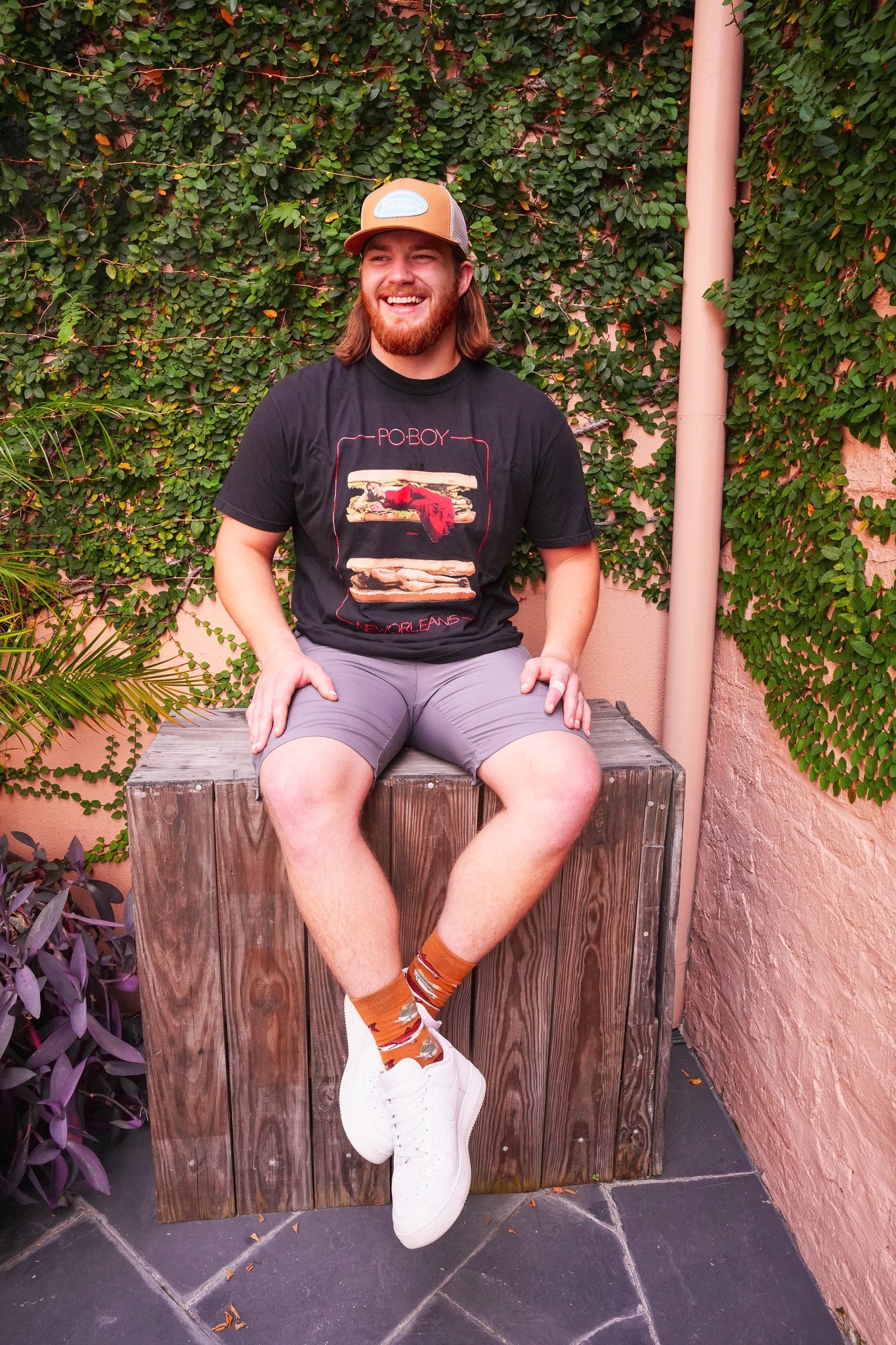
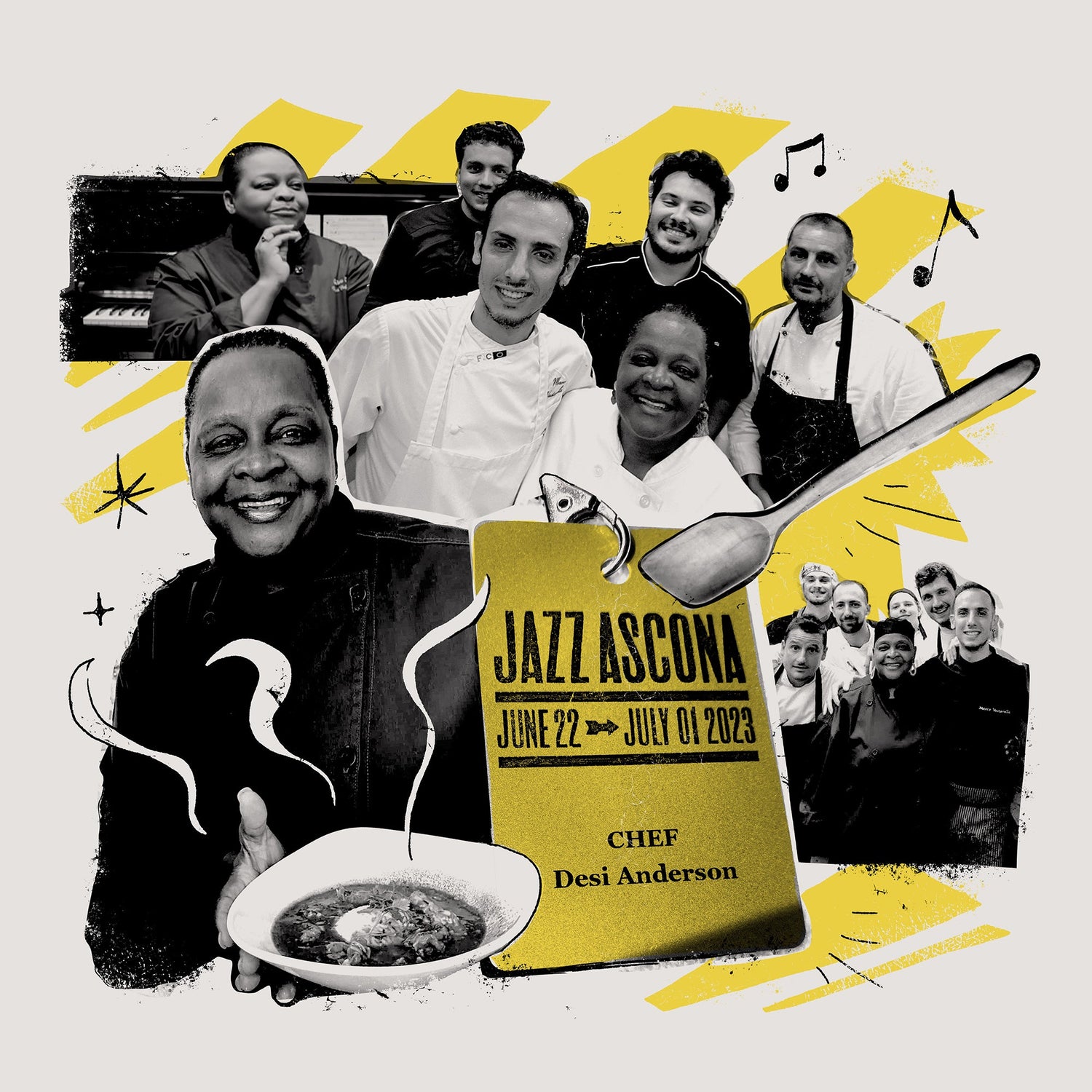
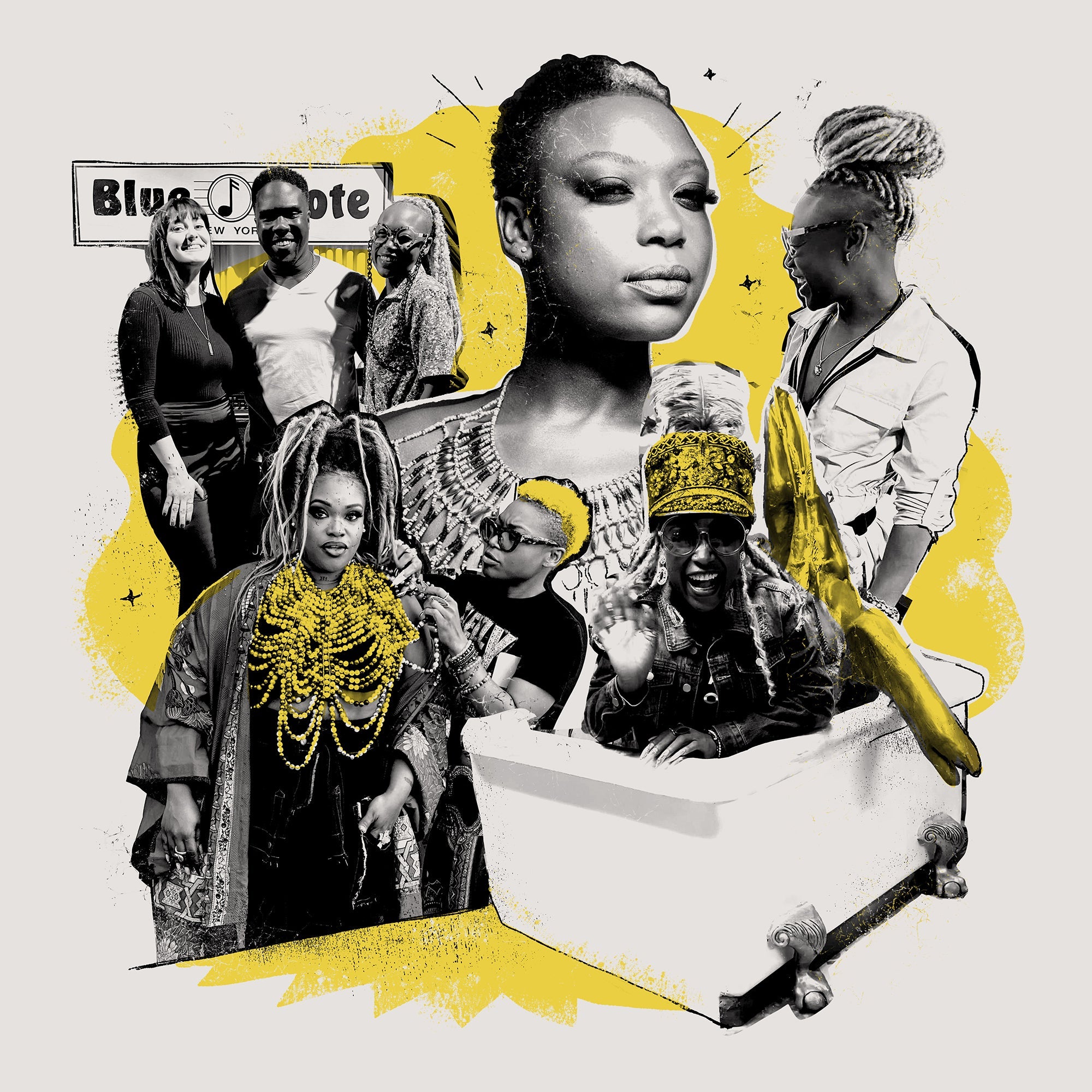
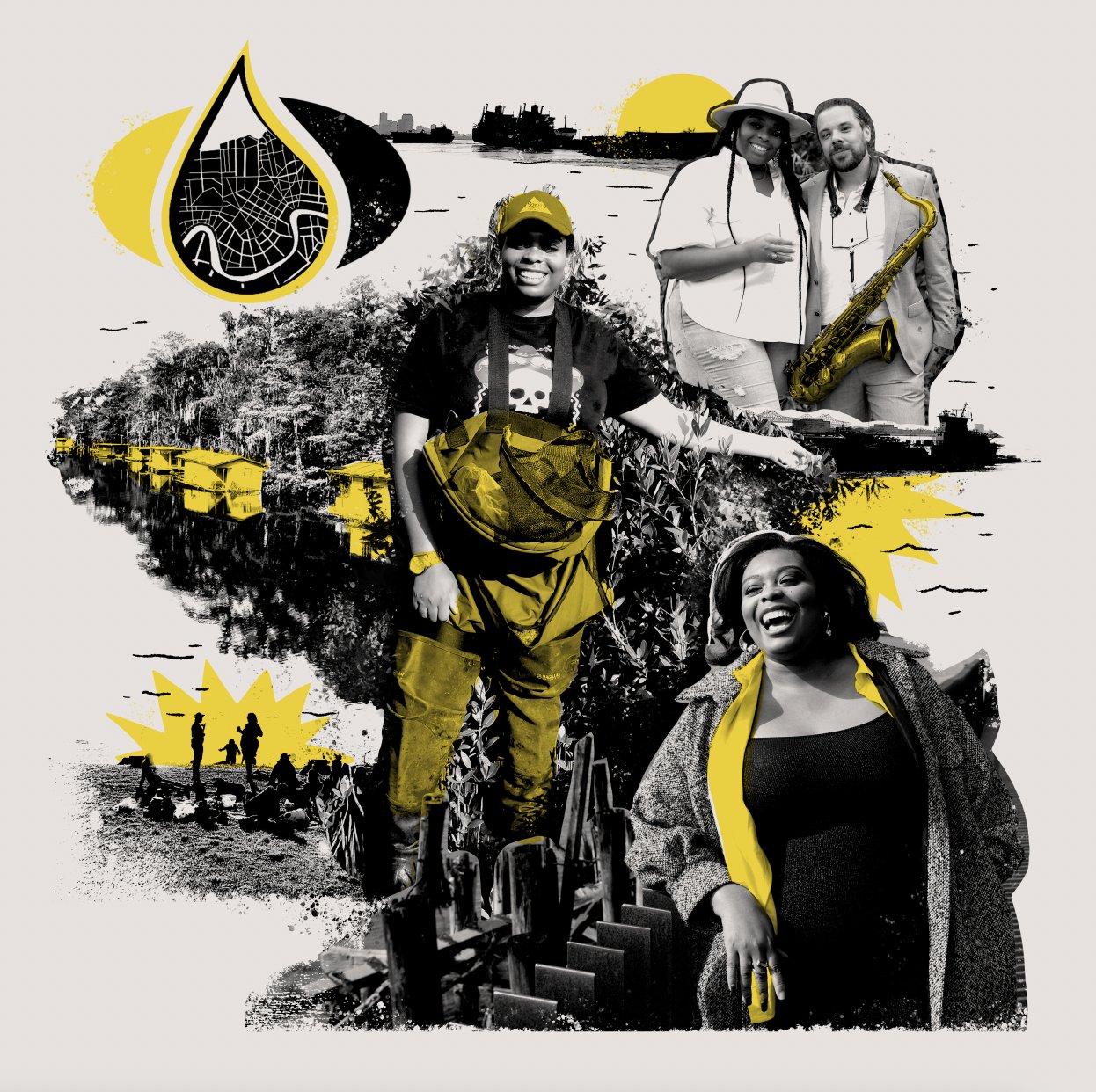
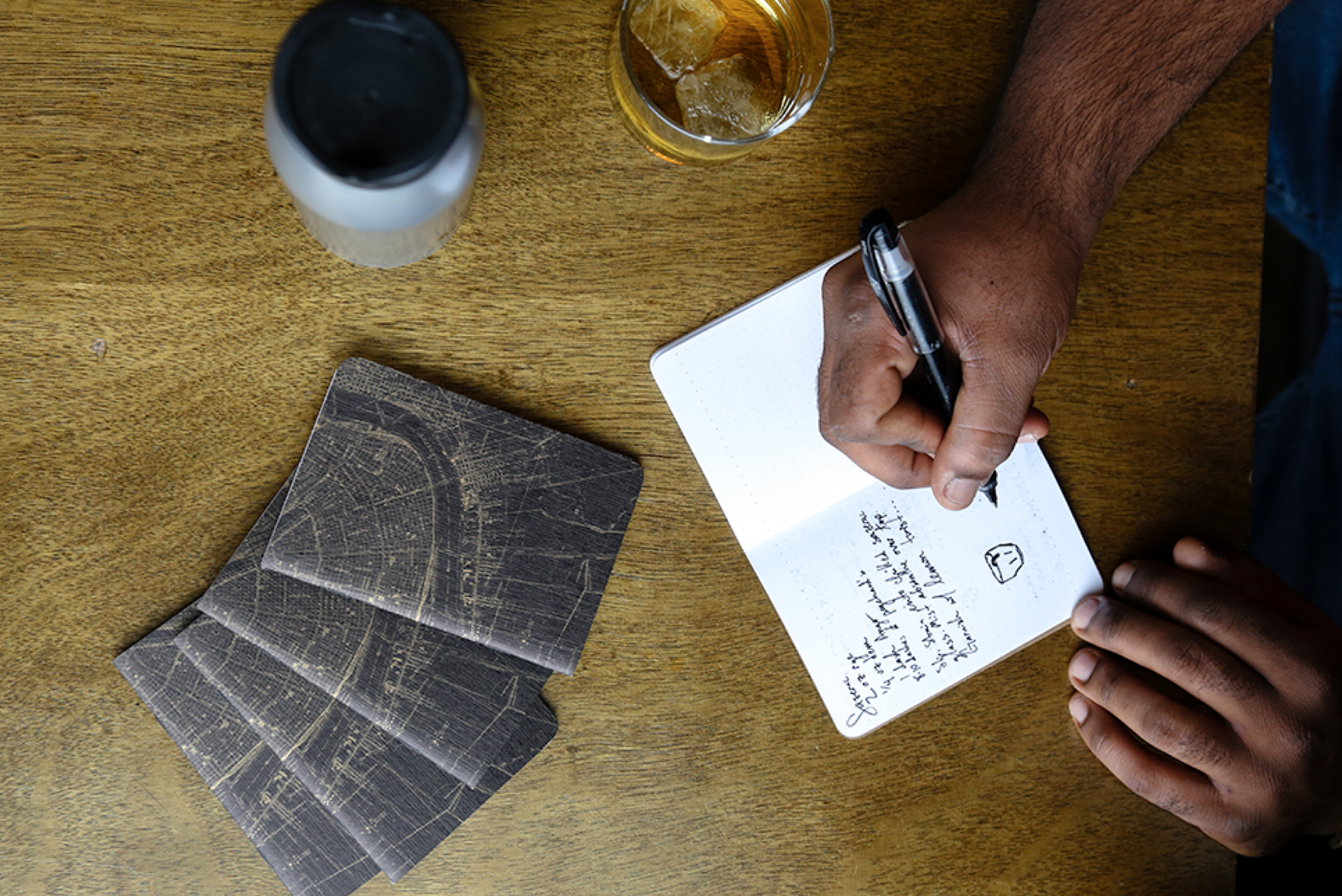


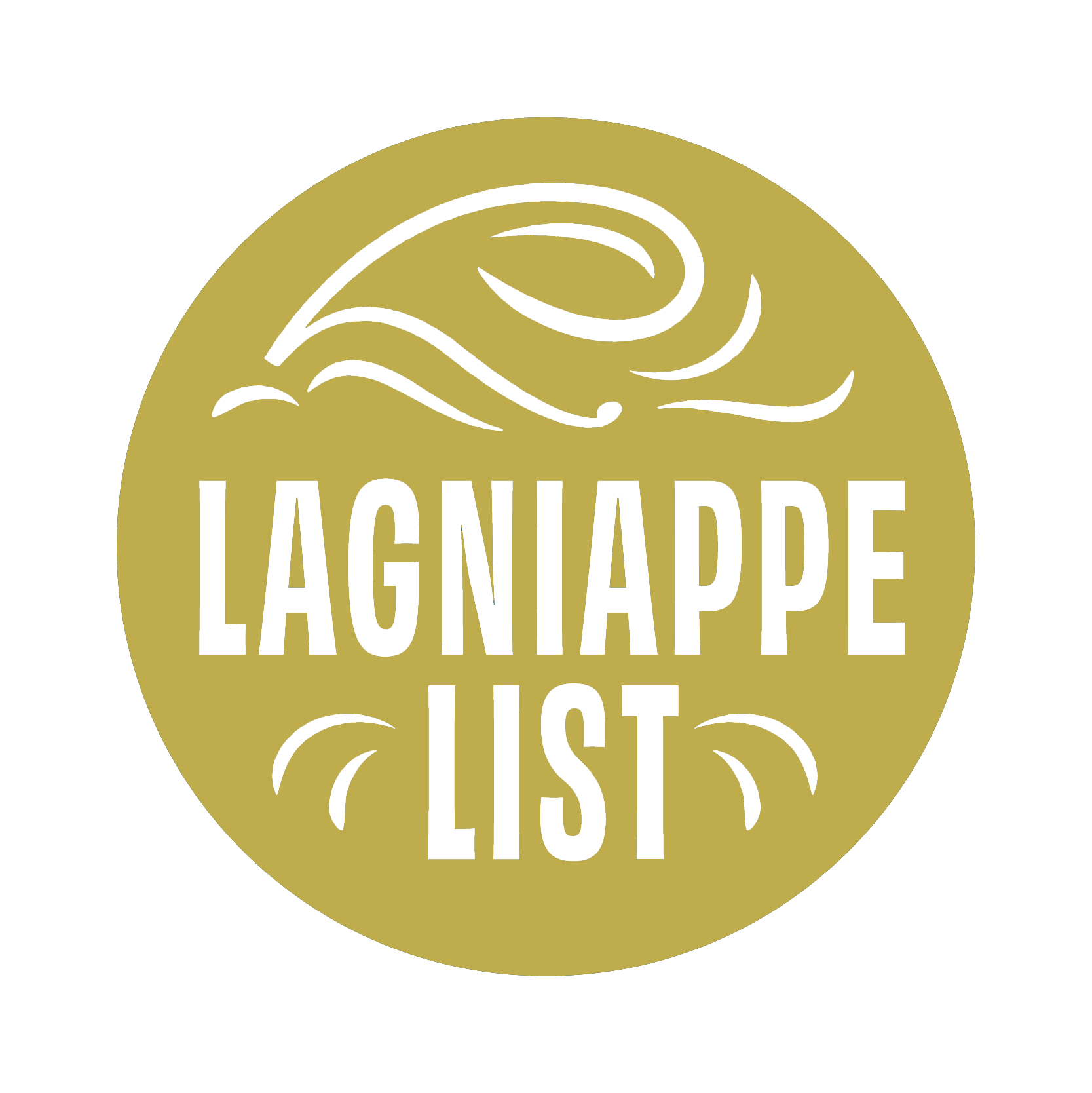
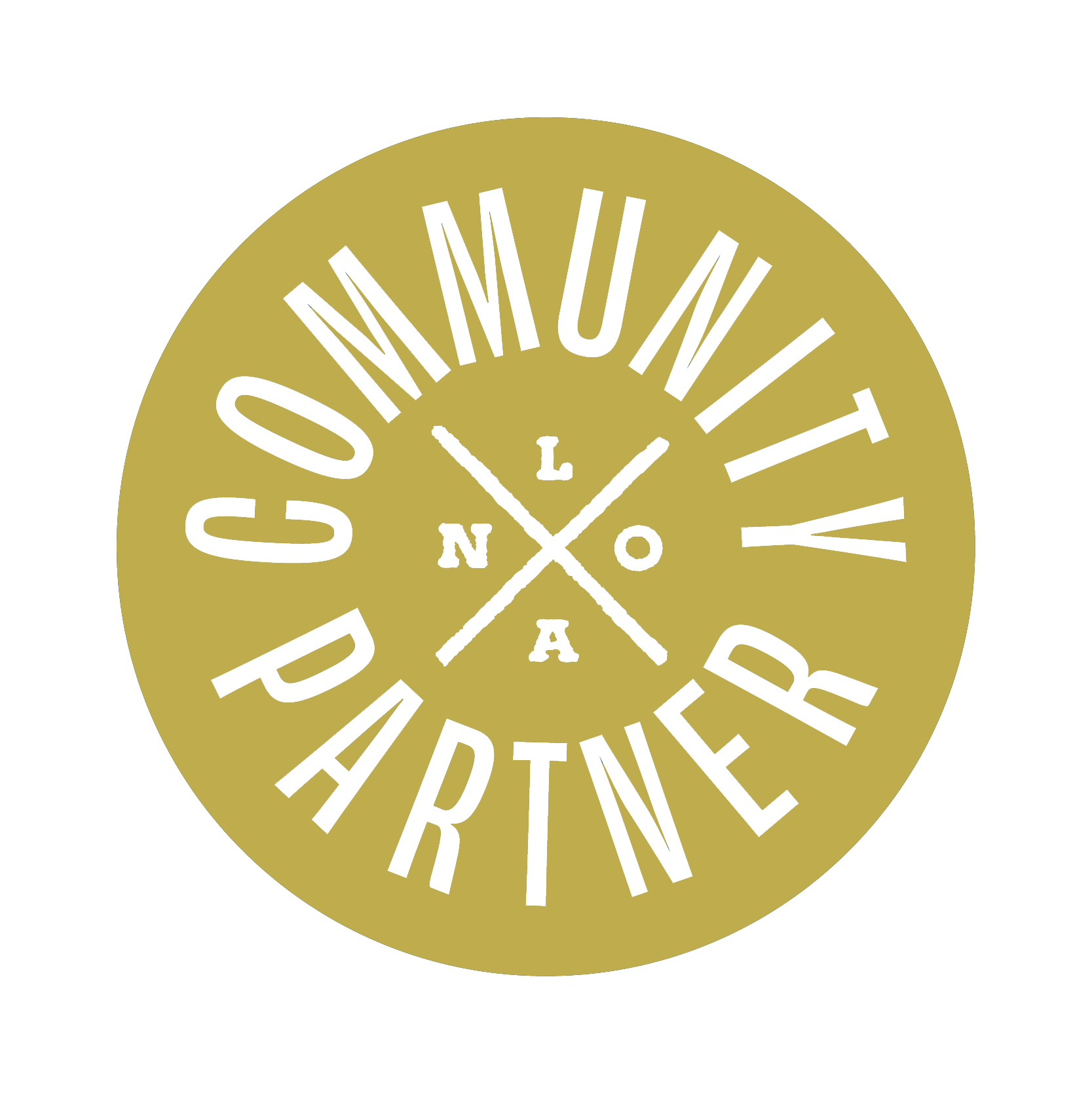
Leave a comment
All comments are moderated before being published.
This site is protected by reCAPTCHA and the Google Privacy Policy and Terms of Service apply.